Syria’s ironclad support for Palestinian resistance in the words of Hamas leaders
By Maryam Qarehgozlou
Since the pathbreaking events of October 7 last year, leaders of the Axis of Resistance have repeatedly emphasized Syria’s critical role in supporting the Palestinian resistance.
The Arab country that borders Palestine and Lebanon to the southwest has long been an indispensable political and logistical supporter of Palestinian resistance factions, facilitating the flow of arms and resources to Gaza-based movements Hamas and Islamic Jihad to organize and strategize.
The events currently unfolding in Syria, which coincided with the announcement of a ceasefire in Lebanon where the Israeli military faced a disgraceful defeat, prove again that the country remains a bulwark in the fight against the Israeli occupation and its Western hegemonic allies.
The terrorist invasion of the Syrian cities of Aleppo and Idlib, as the evidence shows, has been financially and militarily backed by the Tel Aviv regime along with some regional and Western states.
Syria's role and significance in the Axis of Resistance has been publicly acknowledged and praised by leaders of the resistance over the years, including since the Operation Al-Aqsa Flood (Storm).
These statements serve to refute claims that Syria has offered no assistance to Palestinian resistance efforts, particularly over the past year, amid the genocidal war on Gaza that has claimed nearly 44,500 lives so far, most of them children and women.
The statements, before and after October 7, reflect the unshakeable nature of this alliance, highlighting the need for continued solidarity and cooperation between members of the anti-Zionist axis.
‘Unequivocal supporter’
Martyred Hamas leader Yahya Sinwar, who was assassinated by the Israeli regime on October 16, in his speech on April 14, 2023, on the occasion of International Quds Day, acknowledged the crucial role of Iran, Hezbollah and Syria in building and supporting the Palestinian resistance movement.
Sinwar, who was at the time Hamas leader in Gaza, emphasized the unity and solidarity among various factions within the Axis of Resistance, who are opposed to the Israeli occupation and Western influence in the West Asia region.
“The credit for building the resistance goes to the resistance itself, to the support of the Islamic Republic of Iran, the support of Syria (President Bashar) Al-Assad, and developing our relationship with Hezbollah," asserted Sinwar, the charismatic icon of the Palestinian resistance.
He described Syria as “one of the squares of the main pillars and armies in Shaam (Levant).”
Osama Hamdan, the Hamas representative in Lebanon and a prominent member of the resistance movement’s political bureau, also echoed the sentiments of the martyred Hamas leader.
In a televised interview, Hamdan said Syria’s support for the Palestinian people is “unequivocal,” dismissing speculation about the status of the relationship between the two sides.
“Syria is unequivocally supporting the Palestinian people and their resistance,” he stressed.
According to Hamdan, this support “extends across political and media domains,” emphasizing the Arab country's multifaceted commitment to the Palestinian cause.
He added that the foreign-backed militancy that gripped Syria in 2011 and the Western sanctions against the Arab country had “understandably” affected the Assad-led government’s ability “to play its role” in supporting the Palestinian cause.
“Everyone knows what happened to Syria during the past decade and this had an impact on Syria’s ability [to support resistance], but we cannot forget the Syrian position and the Syrian effort over decades that have passed and how it stood by the side of resistance,” he noted.
Hamdan also elaborated on the direct channels of communication between Hamas and Syria, including its leadership, since the launch of the historic Operation Al-Aqsa Flood (Storm) on October 7, 2023.
This interaction has clarified Damascus’ actual stance and persistent endeavors to bolster Palestinian resistance, despite Syria’s diminished capabilities, the Hamas leader emphasized.
Hamas-Syria rift and reconciliation
Relations between the Gaza-based Hamas movement and the Syrian government were affected in 2012 following the outbreak of foreign-backed militancy in Syria a year before.
At the time, Hamas chose to align with some Arab countries that were opposed to Bashar al-Assad’s democratically-elected government, citing ideological reasons.
In 2012, Hamas leaders departed from Damascus and ties between the two sides were severed.
However, despite these developments, the broader Axis of Resistance (including Iran, Syria, Hezbollah, and Palestinian factions) remained on the same page against the Israeli occupation.
Hamas maintained close relations with Iran and Hezbollah, ensuring continuity in strategic cooperation in the resistance axis, even though ties between Hamas and Damascus remained strained.
In the following years, Iran and Hezbollah played a key role in bridging the gap between Hamas and Syria. Their efforts finally delivered goods after the Western-backed militants were thrown out and many Arab countries that were part of the anti-Syria alliance came forward to bury the hatchet.
The mediation of top anti-terror commander and IRGC’s Quds Force leader General Qassem Soleimani and Hezbollah leader Sayyed Hassan Nasrallah restored ties between Syria and Hamas.
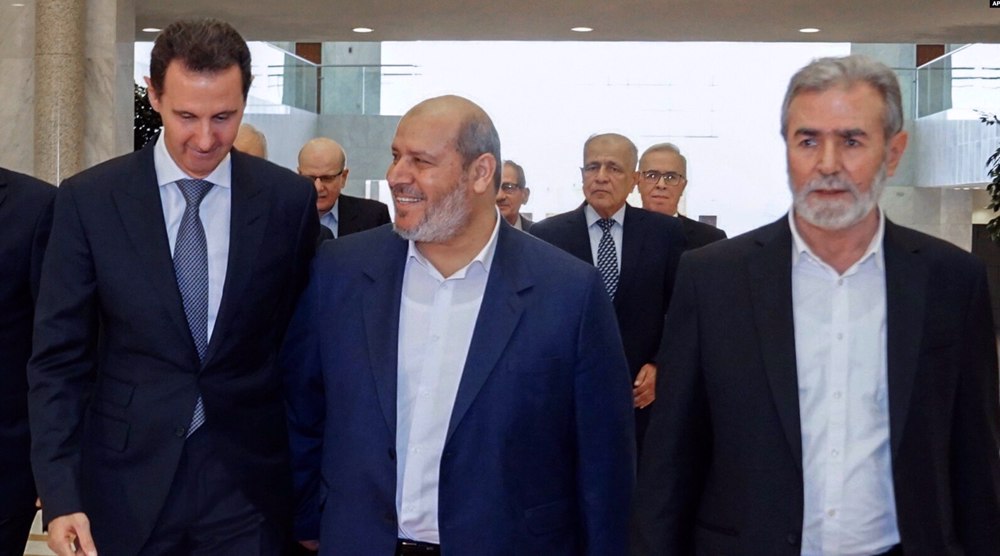
In September 2022, Hamas declared its intention to officially reestablish ties with the Assad government in Damascus, almost a decade after severing relations.
In a statement at the time, Hamas said that it was indebted to Damascus which had “embraced” the Palestinian people and resistance for decades.
“Syria has embraced our Palestinian people and its resistance factions for decades, which requires standing with it, in light of the brutal aggression it is subjected to,” the statement noted, referring to the repeated Israeli attacks on Syrian territory.
The Gaza-based resistance group underscored that reviving its relationship with Syria would significantly bolster the Palestinian cause at a time when the farce of "normalization" with the apartheid regime in Tel Aviv was sweeping the West Asia region.
Hamas said it continues to “build and develop solid relations” with Syria “in the service of our nation and its just causes, with the Palestinian cause at its core, especially in light of the accelerating regional and international developments that surround our cause and our nation.”
The efforts culminated in Hamas leadership's “historic visit” to Damascus in October 2022.
After meeting Assad, Khalil al-Hayya, Hamas’ chief of Arab relations, told reporters in Damascus that it was "a glorious and important day, in which we come back to our dear Syria to resume joint work.”
“This is a new start for joint Palestinian-Syrian action,” he said, flanked by other resistance leaders.
“We are proud of Syria, which has supported and embraced the Palestinian people. Syria has provided for the Palestinians what no other country has provided.”
Hayya said Assad had expressed his country’s determination to continue supporting the Palestinian resistance and that the meeting came as a “natural response to American and Zionist schemes targeting the Palestinian cause.”
The decision to reconcile with Syria was also driven by shifting regional dynamics, including the normalization of relations between some Arab nations and Israel.
In 2020, four Arab countries – the United Arab Emirates, Bahrain, Sudan, and Morocco – normalized relations with Israel in United States-brokered deals, known as the "Abraham Accords."
Hamas's decision to reinstate its relationship with Syria was a cause of alarm for hawks in Israel, as they realized the move could strengthen the position of the Axis of Resistance in the region and impede normalization efforts between Israel and Arab nations.
“Cutting ties with any entity must be justified in terms of the interests of the Palestinian people. In that regard, the only relation we refuse is with the Israeli occupation,” Hamas official Bassem Naim who heads Hamas’s Council of Political and Foreign Affairs said after Hamas-Syria ties were reinstated.
“We need the support of all Muslim and Arab countries and people,” Naim added.
Ziad Miqdad, a senior official of the Palestine Scholars Association (PSA), also said at the time that “seeing any two Muslim states or groups united against the Israeli regime, would weaken its position.”
Syria’s support for resistance
Despite the 10-year foreign-backed militancy in Syria that spawned a worst humanitarian crisis, the Arab country's stance on the Palestinian issue remained unchanged.
Damascus has over the years hosted various Palestinian resistance factions, including Hamas and Palestinian Islamic Jihad, providing them with logistical and operational support.
The country is also home to nearly half a million Palestinian refugees who were driven out of the occupied territories by the apartheid regime.
After Hamas publicly reconciled with Syria, repairing ties that had been strained during the Syrian war, Israel once again emerged as the enduring influence in consolidating the Hamas-Syria alliance.
On October 7 last year, President Assad praised the Hamas-led operation against the Israeli regime in a statement and reaffirmed his government's support for the Palestinian cause.
“This honorable achievement by the Palestinian people proves once again that the only way to achieve the legitimate rights of the Palestinian people is resistance in all its forms and challenging the arrogant Zionist occupation authorities,” read the statement.
He also lauded the Palestinian people’s “wise thinking, absolute courage and creativity” in the face of the “Zionist arrogance.”
“Syria condemns the brutal practices of the occupation against the Palestinian people, stressing that the resistance’s response to these practices proves the right of the Palestinian people to establish their independent state on their land and exercise their legitimate right of return and build a future worthy of this people, their heritage and their dignity that the Zionist colonists tried to steal,” the statement added.
At the Arab-Islamic summit in Riyadh on November 11, Assad joined Arab leaders in condemning Israeli genocide in Gaza and Lebanon, decrying the “massacres, genocide, and ethnic cleansing” of Palestinians and Lebanese.
The Syrian president, in a speech that created a stir, noted that condemnation, boycott, and repeated calls on the international community will never stop Israeli crimes against the people in the region, because Israel is not “a state in the legal sense,” but “an outlaw colonial entity.”
“We are not dealing with a state in the legal sense, but rather with an outlaw colonial entity, we are not dealing with people in the civilized sense, but rather with herds of settlers who are closer to barbarism than to humanity,” Assad said.
Syria as new front for Israeli regime
On 27 November 2024, Israel was compelled to accept a ceasefire in southern Lebanon after almost 70 days of unrestrained violence against the Lebanese people, effectively conceding defeat.
Israel’s military offensive against Lebanon was characterized by unsuccessful attempts to breach the country's territory due to Hezbollah’s strategies, which prompted the regime to surrender.
In Gaza, after nearly 14 months of the genocidal war, the regime has failed to accomplish any of its stated war objectives, despite killing nearly 44,500, 70 percent of them women and children.
So, according to experts, in an attempt to salvage its tarnished reputation, the Israeli regime has now opened a new front of the war in Syria, in order to disrupt the flow of arms to the Lebanese resistance as well as weaken the Assad government’s backing for resistance groups.
On the very day that the ceasefire between Hezbollah and Israel came into effect, Hayat Tahrir al-Sham (HTS) and other Takfiri terrorist organizations launched a series of attacks targeting Aleppo and Idlib in northern Syria.
Zionist analyst Mordechai Kedar in an interview with Israeli media on Sunday revealed that Israel was on the side of the Takfiri terrorist groups in Syria.
“Leaders of Syrian opposition factions have conveyed to Tel Aviv that they are planning to open an Israeli embassy in Damascus and Beirut. I am in constant contact with leaders of Syrian opposition factions, and their current impression is that they do not consider Israel an enemy,” Kedar said.
“The armed factions have requested a detailed list of equipment from Israel and they are ready for a peace agreement with Israel after taking control of Syria and Lebanon,” he added.
Zionist officials have never been shy about their support for Al-Qaeda-affiliated terrorists in Syria, who are now operating under the banner of HTS. They have been known to provide medical care for these terrorists in their hospitals.
The former Mossad head, Efraim Halevy, in 2016 acknowledged Israel’s support for Al-Qaeda-affiliated terrorists in Syria, highlighting that “Al-Qaeda has never attacked Israel.”
Syria’s ‘pivotal role’ in supporting resistance
In a powerful speech delivered in 2016, General Soleimani listed the primary concerns of Western governments and their allies concerning the Syrian government and the resistance axis.
According to Gen. Soleimani, these concerns revolve around two key factors: Syria’s “pivotal role” in supporting the Axis of Resistance and its close ties with the Islamic Republic of Iran.
In his view, the Syrian government has historically distinguished itself from other Arab nations, particularly the affluent ones, which have “turned their back on the Palestinian cause” and “betrayed the broader Muslim community” through their open or covert normalization of relations with Israel.
“Syria, on the other hand, is recognized as one of the few Arab countries willing to jeopardize its own security and territorial integrity for the greater benefit of the Muslim world,” the anti-terror commander said at the time, words that resonate very loudly today.

Advocacy group files war crimes case in US against Israeli soldier
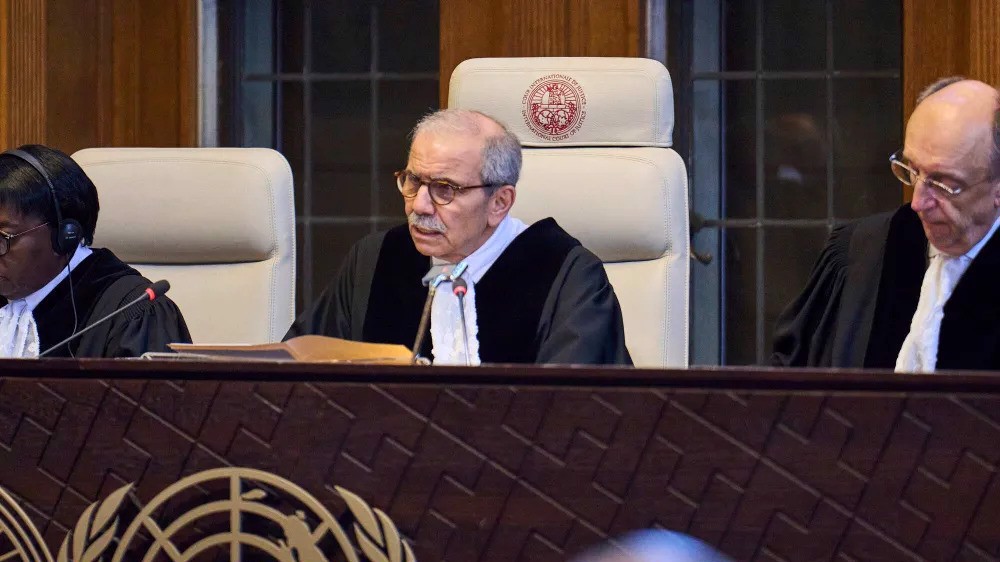
Israel secures 6-month delay in Gaza genocide case at ICJ
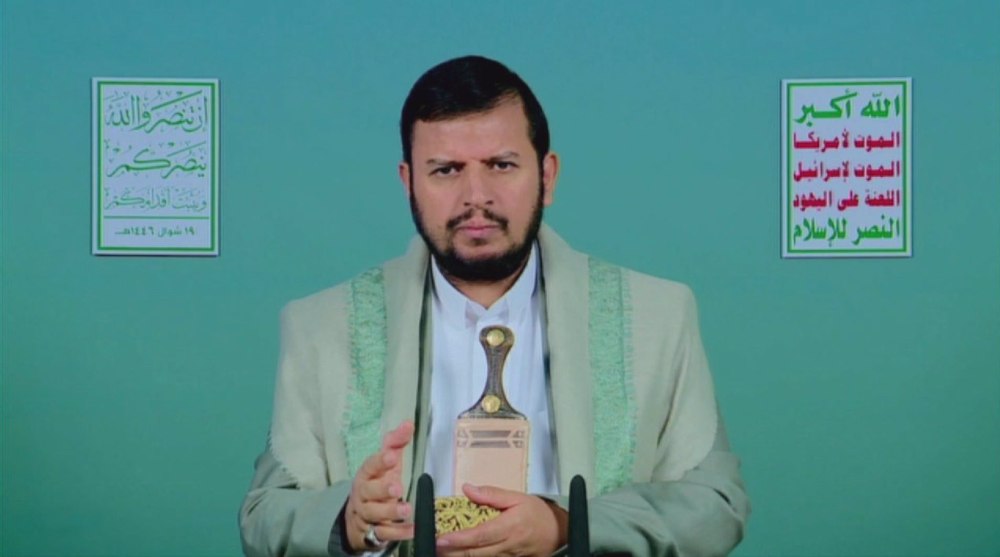
Houthi says US encouraging Gaza genocide, calls for arming Palestinians
Hezbollah chief to Israel: 'We have our options and we fear nothing'
Almost entire population in Gaza relies on food aid: UN agency
VIDEO | Press TV's news headlines
VIDEO | Iran showcases indigenous military capabilities on Army Day
President: Iran strives to solve disputes and foster peace
Israeli attacks kill at least 50 across Gaza as heavy strikes hit north, south
'No force can disarm us': Hezbollah official
Yemen targets Tel Aviv, US aircraft carriers in pro-Gaza operations



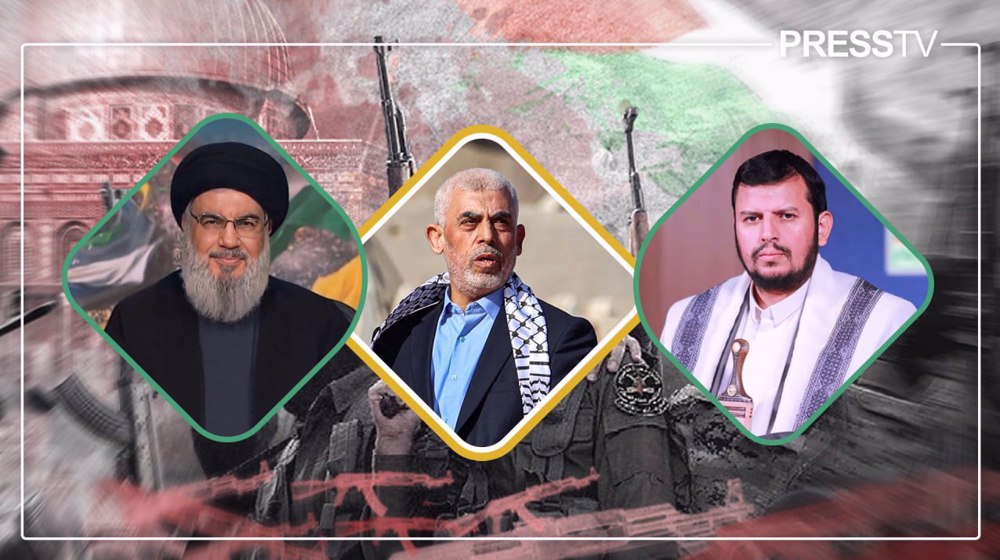





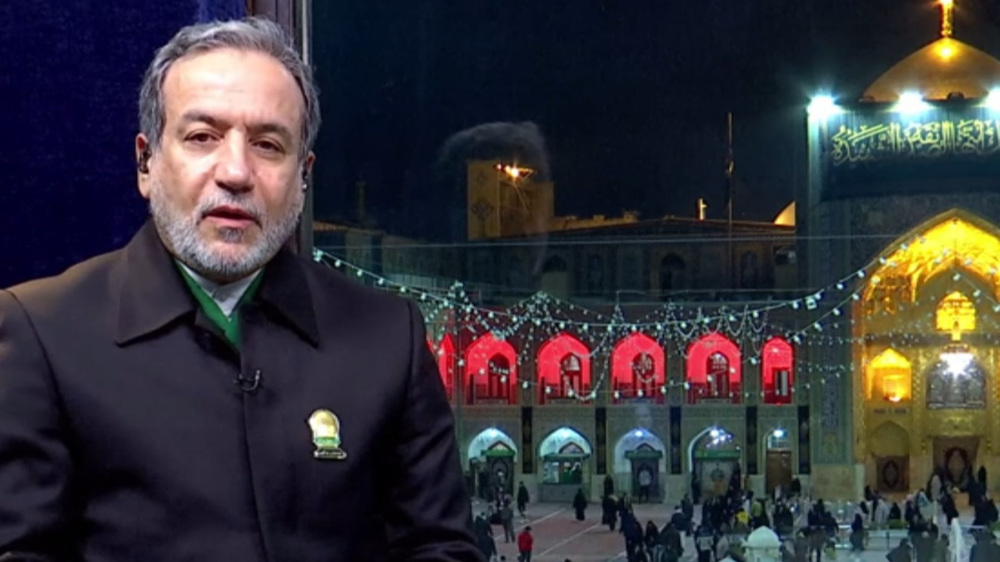
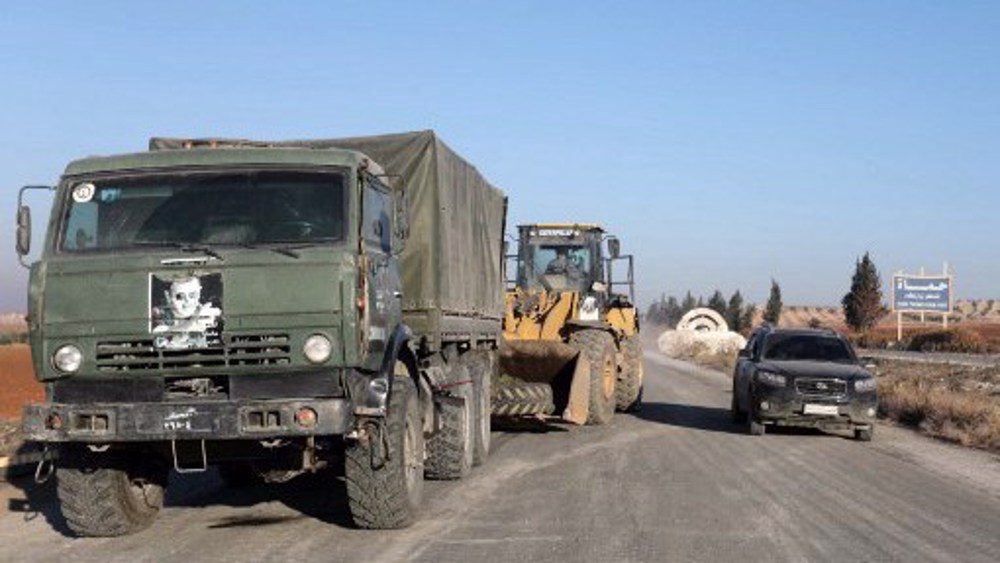
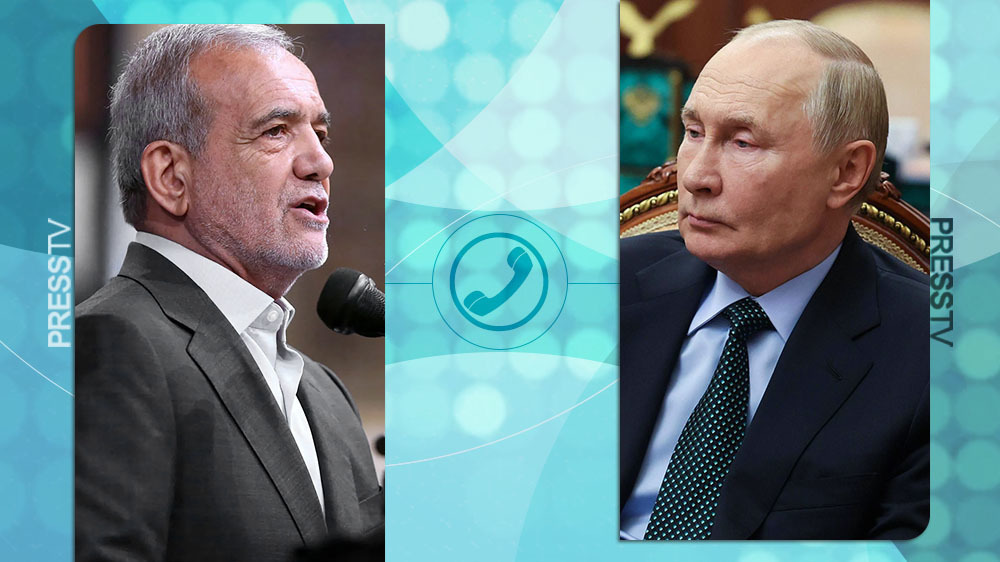
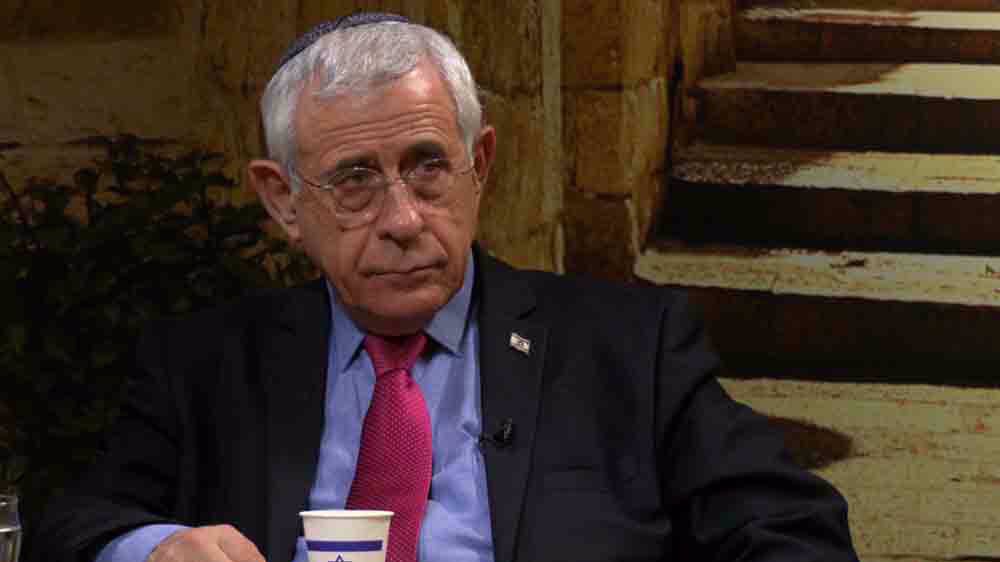
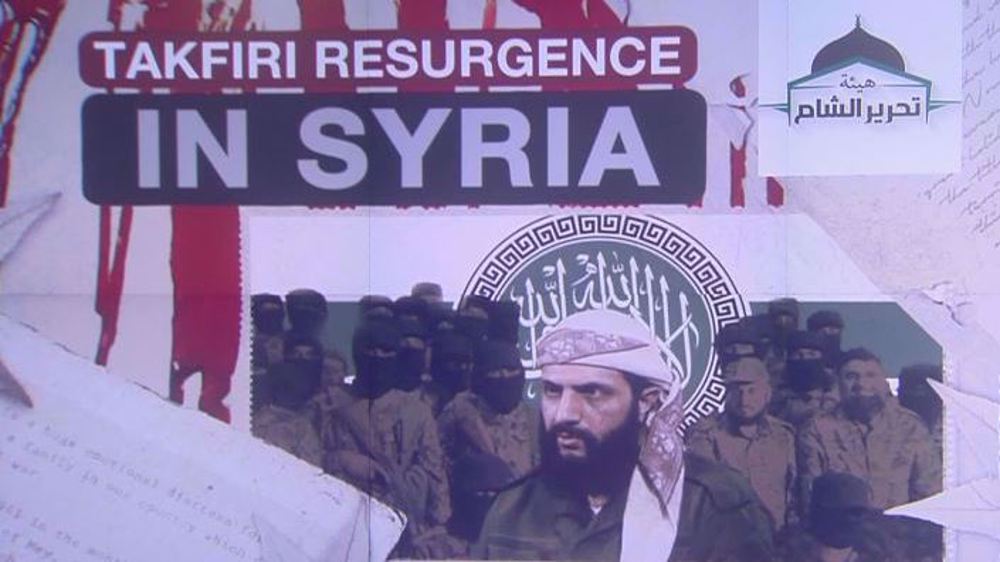

 This makes it easy to access the Press TV website
This makes it easy to access the Press TV website